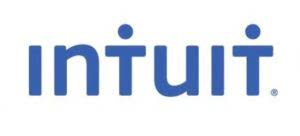For financial analysts performing valuation work and financial modeling, it’s important to have a solid understanding of accounting principles. While this is important, financial models focus more on cash flow and economic value, which is not significantly impacted by accounting principles (other than for the calculation of cash taxes). In short, GAAP is designed to ensure a consistent presentation of financial statements, making it easier for people to read and comprehend the information contained in the statements. In addition, or as an alternative, are the International Financial Reporting Standards (IFRS) established by the International Accounting Standards Board (IASB). The IFRS rules govern accounting standards in the European Union, as well as in a number of countries in South America and Asia. Five of these principles are the principle of regularity, the principle of consistency, the principle of sincerity, the principle of continuity and the principle of periodicity.
What are the basic principles of accounting?
While GAAP accounting strives to alleviate incidents of inaccurate reporting, it is by no means comprehensive. Companies can still suffer from issues beyond the scope of normal balance GAAP depending on their size, business categorization, location, and global presence. The opposing viewpoint holds that GAAP practices create a transparent standard that facilitates direct comparisons and accurate analysis. Non-GAAP accounting techniques deviate from these standards by definition, leading some professionals and stakeholders to dispute or reject their use.
Financial Accounting Standards Board
This principle requires accountants to use the same reporting method procedures across all the financial statements prepared. Though it is similar to the second principle, it narrows in specifically on financial reports—ensuring any report prepared by one company can be easily compared to one another. GAAP is meant to ensure consistency, accuracy, and transparency in financial reporting and aims to provide a reliable foundation for investors to make informed decisions. While the rules established under GAAP generally improve the transparency in financial statements, they don’t guarantee that a company’s financial statements are free from errors or omissions meant to mislead investors.
Generally Accepted Accounting Principles (United States)
- This principle states that any accountant or accounting team hired by a company is obligated to provide the most unbiased, accurate financial report possible.
- Any person or party involved in, or responsible for, the financial side of a business must be honest in all reports and transactions.
- These 10 guidelines separate an organization’s transactions from the personal transactions of its owners, standardize currency units used in reports, and explicitly disclose the time periods covered by specific reports.
- Despite some progress under the Norwalk Agreement, the FASB and the IASB continue to battle friction resulting from fundamental disagreements at the governance level.
- Most financial institutions require annual GAAP-compliant financial statements as a part of their debt covenants when issuing business loans, leading many U.S. companies to adopt GAAP.
- All other accounting literature not included in the Codification is non-authoritative.
According to accounting historian Stephen Zeff in The CPA Journal, GAAP terminology was first used in 1936 by the American Institute of Accountants. Federal endorsement of GAAP began with legislation like what is accounting the Securities Act of 1933 and the Securities Exchange Act of 1934, laws enforced by the U.S. Today, the Financial Accounting Standards Board (FASB), an independent authority, continually monitors and updates GAAP. All 50 states follow GAAP, and many local entities, such as counties, cities, towns, and school districts, must adhere to these principles. CFI is the global institution behind the financial modeling and valuation analyst FMVA® Designation. CFI is on a mission to enable anyone to be a great financial analyst and have a great career path.
What are the five major GAAP principles?
- However, this problem-by-problem approach failed to develop the much needed structured body of accounting principles.
- This principle ensures that any company’s internal financial documentation is consistent over time.
- Formally reported data must be fact-based and dependent on clear, concrete numbers.
- Some companies may use GAAP and non-GAAP measures to report their financial results.
- The IFRS is used in over 100 countries, including countries in the European Union, Japan, Australia and Canada.
- Some U.S. small and mid-size enterprises (SMEs) voluntarily use IFRS accounting procedures, which are neither expressly permitted nor prohibited under applicable U.S. laws.
Each principle is meant to guarantee and support clear, concise and comparable financial reporting. Any financial statement must accurately reflect all of the company’s assets, expenses, liabilities and other financial commitments. Reports must therefore be thorough and clear, without any omissions or modifications. Any person or party involved in, or responsible for, the financial side of a business must be honest in all reports and transactions. Along with several other principles, this serves to maintain an ethical standard and responsibility in all financial dealings. GAAP must always be followed by accountants and businesses when handling financial https://www.bookstime.com/articles/small-businesses-bookkeeping information.
- Some companies in the U.S.—particularly those that are traded internationally or see a lot of international business—may use dual reporting (i.e., both methods) when preparing financial statements.
- Note that in some instances, they may also be called the four principles, but they are different from the more specific ten principles above.
- GAAP also seeks to make non-profit and governmental entities more accountable by requiring them to clearly and honestly report their finances.
- While the two systems have different principles, rules, and guidelines, IFRS and GAAP have been working towards merging the two systems.
- Members of the public can attend FAF organization meetings in person or through live webcasts.
Financial Accounting Standards Board (FASB)
All negative and positive values on a financial statement, regardless of how they reflect upon the company, must be clearly reported by the accounting team. Accountants cannot try to make things look better by compensating a debt with an asset or an expense with revenue. This principle states that any accountant or accounting team hired by a company is obligated to provide the most unbiased, accurate financial report possible. Although a business may be in a bad financial situation, one that may even compromise its future, the accountant may only report on the situation as it is. IFRS principles are issued and updated by the International Accounting Standards Board (IASB), an independent and private organization based in London. As of June 2024, IFRS guidelines are used in more than 100 countries, including most major economies in Europe, South America, and Asia.
Diverse Types of Companies
The Financial Accounting Standards Board (FASB) publishes and maintains the Accounting Standards Codification (ASC), which is the single source of authoritative nongovernmental U.S. The FAF is responsible for appointing board members and ensuring that these boards operate fairly and transparently. Members of the public can attend FAF organization meetings in person or through live webcasts. Accounting.com is committed to delivering content that is objective and actionable.






Leave A Comment